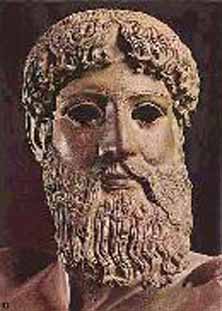 I have not the vaguest idea whether scripture can be or is in error in part or not. I am inclined to say that insofar as it is truly the communication of a supremely good God that it is not in error and insofar as it is a human production it is almost certainly in error in part. But I don't claim to be able to tell which is which and whether even what I've just said is true or not.
I have not the vaguest idea whether scripture can be or is in error in part or not. I am inclined to say that insofar as it is truly the communication of a supremely good God that it is not in error and insofar as it is a human production it is almost certainly in error in part. But I don't claim to be able to tell which is which and whether even what I've just said is true or not.So how do I go about it, i.e. reading scripture? Well I read it as if it is error free on the supposition that anything I really need to know will be correct. I also read it with discernment based on the innate sense of right and wrong that God has given each of us. If something doesn't seem to make sense to me, I don't automatically assume it is wrong, I assume that it doesn't make sense to me, i.e. I acknowledge my lack of understanding. There are many things in scripture that are obscure to us because we live such different lives so much later on the time line. Straightforward customs of ancient times, things that would not need to have been explained to anyone and are just understood will completely pass us by. Occasionally some of these are pointed out by the author, likely others simply mystify us even to the point of not being translated.
The scholars of the late nineteenth century decided that the bible was full of doubtful material. All those miracles for example could not be true. What happened was a whole lot of rethinking of biblical material always questioning the accuracy of the accounts. Theories were advanced of a long period of oral tradition before the accounts were written down. Now in fact there is no particular reason to believe in a long period of oral tradition. Nothing we know of demands it except the suppositions of skeptics to begin with. Tradition has assigned the accounts to eye witnesses or those who knew eye witnesses. There is no particular reason to doubt the traditional assignments except that it would call into question the theory of oral tradition.
I want to take a particular case in point and talk about it. That is the rather timely case (since it is within the Christmas Season) of the Nativity accounts. There are two accounts of the birth of Jesus, one in the gospel of Matthew and the other in the gospel of Luke. Christians typically conflate the accounts and scholars say that the accounts are irreconcilable. Now I think it is pretty silly to claim that they are irreconcilable when the average person reading the accounts doesn't leap to the conclusion that something is wrong. I think the reason for that is that harmonizing the accounts, far from being particularly difficult, is actually fairly easy. There are no outright contradiction only silences which disquiet scholars who are used to printed texts and instant communication. The ancient world wasn't like that. Books were expensive since each had to be individually written out. One did not multiple details that were irrelevant to one's purposes so it is not at all surprising that two writers writing at different times for different purposes might give different accounts of the same story, Matthew writing for a Jewish audience and Luke writing for a Gentile audience. If we keep those factors in mind we can almost immediately see why the accounts differ. The details in each case that are left out are details of little interest to the other evangelist because his audience is different. It is also quite possible that their own sources differed and that they were simply unaware of some details and so didn't touch upon those matters they did not know in common. We'll look a bit more closely at these two Nativity accounts in the next post.


























